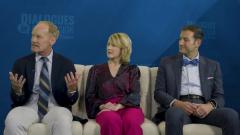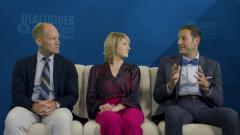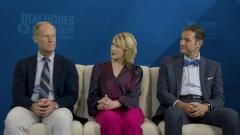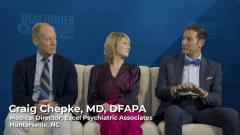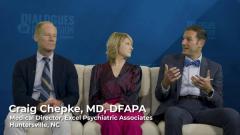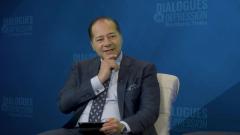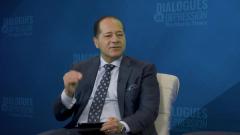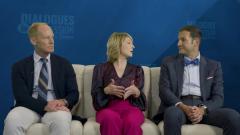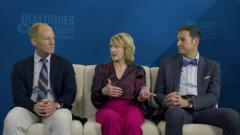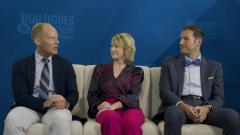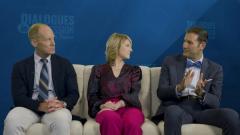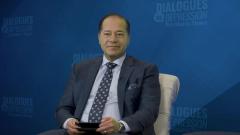
Examining New Agents for MDD Treatment (Esketemine)
Clinicians wrap up their discussion of three new agents approved for the treatment of major depressive disorder (MDD).
Episodes in this series

Transcript
Gus Alva, MD, DFAPA: Let’s hop over to esketamine—thoughts regarding clinical trials results clinical applicability and so on? With the point that this is [for] treatment-resistant depression.
Craig Chepke, MD, DFAPA: Well, there’s treatment-resistant depression, but there’s the major depressive disorder with acute suicidal ideation [cohort]. Those could have been patients who were treated [in the] first line with it. So, to me, the thing that’s very impressive about those clinical trials is with 2-fold. One, the degree of difficulty. These were patients with moderate scores in the 38 to just barely over 40 in the MDSI [major depression with suicide ideation] studies. Incredibly sick patients. And then in MDSI an inclusion requirement that they were acutely suicidal. That’s an exclusion criteria for almost every other MDD [major depressive disorder] study. So [a] phenomenally sick population. And we saw efficacy in the MDSI studies, [as] Greg mentioned earlier, as early as 4 hours. And the primary end point, MDSI [at] 24 hours, and seeing statistically significant improvement. So it’s kind of like in the Olympics in gymnastics, they grade you not only on your artistry, but the degree of difficulty. Well, they had a high degree of difficulty, and they met it in a very quick time frame. That, to me, was very impressive in those studies.
Erin Crown, MHS, PA-C: I think accessibility continues to be the greatest hindrance. It’s a great product, definitely has lived up to the data shown in the clinical trials. And again, they have remission data as well. It’s important to remember that people actually need to stay on this medication long term. This is not the 2-week treatment and then they’re done with it, and we know that when people stop it, they relapse at higher rates. But, again, speaking from rural America, transportation can be a challenge. Sometimes people have to [travel] 2, 2.5 hours to my clinical site to access this medication. The inability to drive themselves home is a limiting factor. But a great product, nonetheless.
Greg Mattingly, MD: So, if I was kind of thinking of them, for our clinicians out there, and I agree with [Erin] 100 percent, esketamine has been transformative for some of my patients. I love the MDSI data, because it teaches us a lot about where we can use esketamine glutamate medicines along with mood stabilizers, atypicals, psychostimulants. If I was thinking about where I would niche them in my clinical practice, Gus, I think the oral availability of the dextromethorphan -bupropion combination, AXS-05, is probably going to make it the top of my list as far as use for people with depression. Rapid onset, sustained onset, high remission, different [adverse] effect profile. I think for the postpartum group, zuranolone is going to top of the list. It’s the only FDA-approved oral medicine for postpartum women. You take it once a day for 2 weeks, and a big chunk of people, they’re done at that point. And then, finally, it’s great to have esketamine as your safety net. It’s not as available. You have to come to a clinic like ours to get it. [But you] can go online and find that clinic. They’re available all across the country. I have people who go to Florida and spend the winter. I go online and look up Naples, Florida, [or] Sarasota, and I find an esketamine clinic where they can keep their treatments going. But you do have to keep them going. So I think that’s my safety net when I think about where I use it.
Gus Alva, MD, DFAPA: Excellent points, and those are very practical. Thank you, Greg, for that.
Transcript was AI-generated and edited for clarity.
Newsletter
Receive trusted psychiatric news, expert analysis, and clinical insights — subscribe today to support your practice and your patients.

